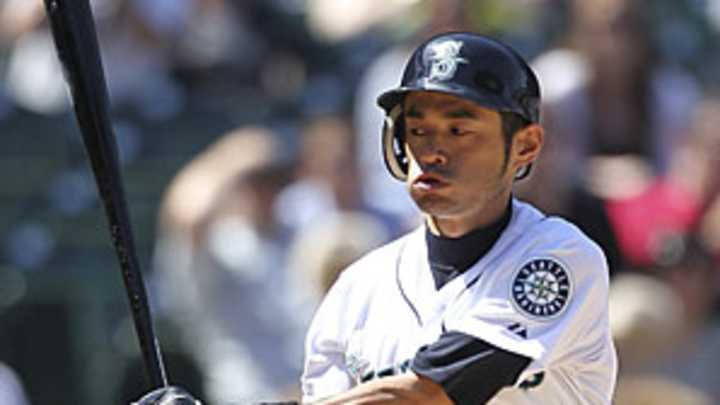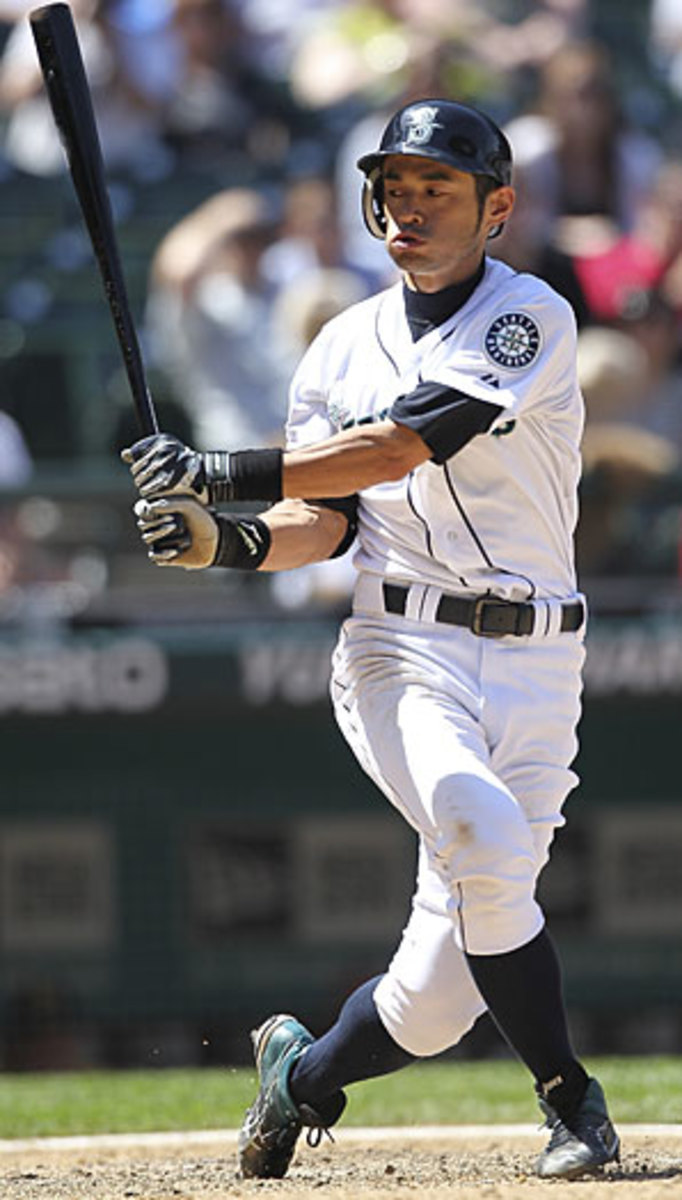In Ichiro, Yankees get a big name and not much else

Ichiro Suzuki no longer resembles the player he was when he made the All-Star team and won a Gold Glove for each of his first 10 season in the majors. (Getty Images)

If Yankees general manager Brian Cashman has proven one thing in recent years, it's that he can move with as much stealth as any executive in the game. Despite operating in the country's largest media market, and within an organization once notorious for leaking news and generating headlines, he can pull off free agent signings and trades without the media getting wind until the news actually breaks. Free agent signings from Johnny Damon to Mark Teixeira to Hiroki Kuroda to Andy Pettitte testify to his tight-lipped approach, as does the Jesus Montero/Michael Pineda trade (not that it's worked out well for either the Yankees or the Mariners thus far), all of which took the baseball world by complete surprise. On Monday, he struck again, acquiring Ichiro Suzuki and about $5 million in cash from Seattle in exchange for a pair of pitching prospects, D.J. Mitchell and Danny Farquhar.
Ichiro, a 10-time All-Star who has spent all 12 of his stateside seasons with Seattle, wasn't even known to be on the trading block. But as a 38-year-old pending free agent mired in yet another losing season for a rebuilding team, in retrospect it all makes sense, both from his standpoint — as a 10-and-5 player, he had to consent to the trade, and indeed, he is said to have asked the team to move him two weeks ago — and from that of the Mariners. It still rates as shocking from the standpoint of the Yankees, however. Cashman was known to have checked in on the likes of Justin Upton and Shane Victorino, only to find their acquisitions prohibitively costly, and he has said several times he expected to be rather quiet at the deadine, making only marginal improvements.
For all of his international superstardom, Ichiro rates as a marginal improvement at best. He's simply no longer the Ichiro in the catalog anymore, the player who collected at least 200 hits every year from 2001-2010, and set a major league record with 262 in 2004. A quick look at his stat lines suggests he's suffering from Acute Bat Death Syndrome, hitting .261/.288/.353 this year, down from an already awful .272/.310/.335 last year, his first truly subpar season. Some of that owes to pitcher-friendly Safeco Field, where he has hit .245/.283/.320 in 2011-2012; away from there, he has hit .289/.320/.362.
Even so, for a corner outfielder, those are abysmal numbers. His .235 True Average this year ranks 24th out of 25 who qualify for the batting title, with Jeff Francoeur (.232) the only one who's worse. It's also worse than all 16 qualified leftfielders, the position where Ichiro is likely to spend the majority of his time with New York, and 19 out of 20 qualified centerfielders. Digging further down into the numbers, it appears that the lefty swinger, whose career splits against lefties and righties are virtually equal, has tailed off more sharply against lefties (.261/.288/.297 with just 14 unintentional walks and one homer in 371 PA) than righties (.271/.308/.364 with eight homers and 25 unintentional walks in 773 PA) during the 2011-2012 period.
The question is how much he can help a Yankees outfield beset by injuries. Last week, the team announced that Brett Gardner, who has been limited to nine games this year, will undergo arthroscopic elbow surgery and be lost for the season, and on Friday in Oakland, Nick Swisher suffered a mild hip flexor strain that could sideline him for a week. Raul Ibanez and Andruw Jones have been overexposed relative to a preseason blueprint that had them sharing DH duties when neither Alex Rodriguez nor Derek Jeter needed a half-day of rest; Ibanez has started 44 of the Yankees' 95 games in leftfield, while Jones has started 22, with both players picking up another seven in rightfield. They have combined for 24 homers in 429 PA this year, many of them timely ones, but their contributions are less impressive when one considers that they've cumulatively hit .236/.301/.470, good for a net of 0.7 WARP between them. As bad as the duo (particularly Ibanez) have looked in the field at times, none of the major defensive metrics suggests they've been more than a couple runs in the red thus far.
The player Ichiro replaces on the roster is another player who fits that bill, namely Dewayne Wise, who was designated for assignment. The 34-year-old outfielder enjoyed a recent hot streak that had lifted his line to .262/.286/.492 in 61 PA, but for all of his reputation as a defensive wizard, he didn't add more than a couple runs of value to that according to any metric; Baseball Prospectus pegs him at 0.4 WARP overall. For what it's worth, three of the four major systems — Defensive Runs Saved, Ultimate Zone Rating and Total Zone — place Ichiro's defensive value this year at or above 10 runs above average in the field, an extraordinary number for a rightfielder of any age.
Perhaps the most interesting facet of this trade is Ichiro's willingness to move from the only MLB team for whom he has played since coming over from Japan in 2001. He is making $17 million in the final year of a five-year, $80 million deal, with next year a delicate subject — at least until his predecessor as the Mariners rightfielder, Jay Buhner, publicly proclaimed, "I'd vomit," when asked about the possibility of the team re-signing a 39-year-old banjo hitter. The trade frees both sides of the burden of going through what was bound to be an emotional and awkward negotiation. It also alleviates a delicate situation for manager Eric Wedge, who had promised to give his star more rest but had failed to do so, suggesting something of a power struggle; every day off for the star generates headlines, particularly from the Japanese media contingent. Last year, Ichiro played 161 games (10 at DH), while this year he had played 95 of Seattle's (two at DH).
As mentioned above, early indications are that he'll take over as the Yankees' regular leftfielder, at least once Swisher returns to health. Swisher has 117 career games played in leftfield, but only eight of them (four starts) have come with the Yankees, suggesting that the Yankee brass isn't wild about him covering the additional expanse of Yankee Stadium's oversized leftfield, particularly given his recent history of leg injuries. Ichiro has never played leftfield in a regular season major league game (he did so once in the 2001 ALCS against the Yankees to accommodate Buhner), and it remains to be seen how he adapts to the new position and his new surroundings. Given his struggles against lefties and his apparent need for rest, it's likely the lefty-swinging Ibanez will see a greater reduction in playing time than Jones, a righty who mashes lefties.
